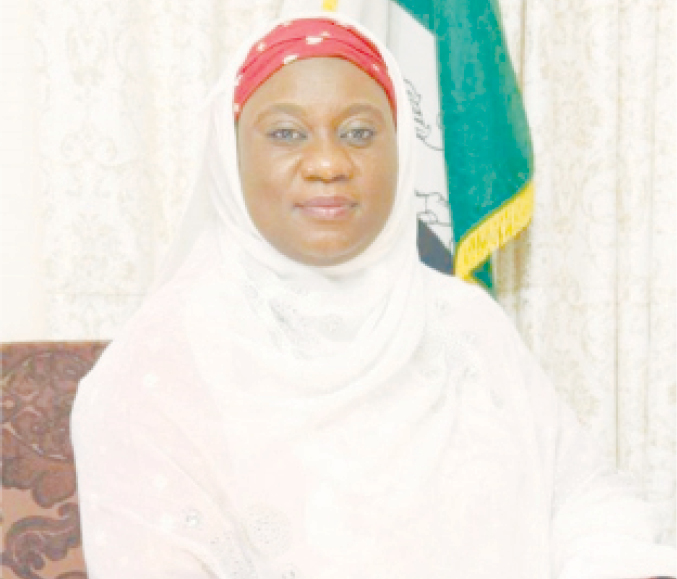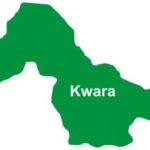Dr Amina Abubakar Bello is the Chairperson of First Ladies against Cancer (FLAC), a non-governmental organisation, and First Lady of Niger State. Bello who is also a consultant Obstetrician and Gynaecologist in this interview, speaks on the need for a specific budget line for cancer in the country, ways to ensure affordable treatment and more.
Can you briefly tell us about First Ladies Against Cancer?
FLAC was established in 2016 by five governors’ wives; the wives of the governors of Kwara State, Omolewa Ahmed, Ogun State, Olufunso Amosu, Oyo State, Florence Ajimobi, Niger State, myself, and Kebbi State, Dr Zainab Shinkafi- Bagudu.
We gradually increased to 10. The wives of Kwara, Ogun and Oyo states governors became former governors wives and new members joined. They are the wives of the current governors of Kwara State, Olufolake Abdulrazak, Ondo State, Betty Anyanwu-Akeredolu, Ekiti State, Bisi Fayemi, Enugu State, Monica Ugwuanyi and Cross River State, Linda Ayade.
- BREAKING: Kidnappers Storm Kaduna School, Abduct Only Female Students
- PPPRA Projects Fuel Price At N212 Per Litre
The basic function of the coalition is advocacy on cancer issues. The overall aim is to see that the incidence, morbidity and mortality of cancer is reduced to the barest minimum by ensuring that everything that needs to be taken care of around cancer care is taken seriously, policies are implemented and that government carries out its responsibilities.
Late presentation for cancer care has persistently been a challenge in the country. How do you think it can be addressed?
One of the major causes of late presentation for care is low awareness and misconception about cancer.
The vast majority of Nigerians do not know much about the disease. There is also misinformation even when people can present early, it is either someone tells them it is spiritual, and they have to go to a pastor, imam, traditional healer, and so they get scared and keep on delaying and taking other unorthodox treatments before they go to the hospital.
Thirdly, even when they go to the hospital, a lot of women do not have access to basic healthcare services that allow them to be diagnosed and treated early.
We, the first ladies in the collation work collectively and individually at our various foundations towards increasing awareness about cancer.
For example, RAiSE Foundation, my foundation call-in programmes and radio show that provide information on cancer.
We also hold public lectures in schools especially secondary and tertiary institutions and go to communities for health outreaches.
One of the things FLAC has done that we are very proud of was initiated by the wife of the former governor of Kwara State, Mrs Ahmed.
We produced a movie, which is now on Netflix called ‘Diamonds in the Sky’ and it showed different women and their experiences with cancer. It also addressed misinformation about cancer.
As a group, we supported that movie by doing a Premier in Lagos in October 2018. We got a lot of good feedback and people got to understand more about cancer.
We also mark the various cancer days with sensitization, screening and treatment activities; and as part of our activity for October, last year renovated the oncology ward of the University of Abuja Teaching Hospital, Gwagwalada.
What do you think the government can do to make cancer treatment affordable?
The Nigerian government should ensure that cancer treatment is incorporated in the national and state health care insurance systems.
Cancer is currently, not one of the diseases covered in the health insurance schemes, and that is why many people are suffering.
Specifically, what is FLAC doing to make treatment affordable for women, especially with breast, cervical and ovarian cancers?
We are advocating to the federal and state governments to incorporate it in the health insurance schemes.
For example, in my state, we have a state health insurance scheme called NiCare , it started at the beginning of this year, and is currently enrolling.
We have ensured a minimum package offer for cervical and breast cancer in the scheme.
So, basically, if a woman has been registered for NiCare, she is entitled to free screening for breast cancer and cervical cancer. We are yet to integrate treatments but we are working towards that.
How effective do you think the National Cancer Control Plan 2018-2022 is?
The National Cancer Control Plan is actually a very good plan on paper. The problem is that it has not been implemented fully to really access its effectiveness. However, the plan itself is laudable if implemented properly.
Most of the challenges have to do with funding. So, the government needs to create a budget line that is specific for cancer patients in Nigeria because it is a public health problem that needs to be addressed.
FLAC recently signed a partnership agreement with Roche Nigeria, a pharmaceutical organisation. What impact will the partnership have on cancer care?
We have been in partnership with Roche Nigeria since 2006. It has been supporting all of our advocacy and sensitization activities.
It also provides support for our individual awareness programmes and supports the treatment of breast and cervical cancer. Even though we know that access to healthcare in Nigeria is poor, there are services that people are not going for because they don’t know about them. So the partnership with Roche works very well in helping us to disseminate information.
The World Health Organisation (WHO) in November last year launched a global strategy to accelerate the elimination of cervical cancer. How is FLAC helping to implement its three steps of vaccination, screening and treatment in Nigeria?
The aim of the elimination strategy is that by the end of the year 2030, 90 per cent of girls would have been vaccinated against Human papillomavirus (HPV), 70 per cent of women would have been screened for HPV by the age of 35, and have another one repeated by the age of 45; and 90 per cent of the women that have been diagnosed with cervical cancer are treated effectively.
So to implement the strategy, we screen women in our various states for cervical cancer and most of us use the method of visual inspection of the cervix with acetic acid. It is a simple, inexpensive test and we are able to detect women who have pre-cancerous lesions and treat them at the same time.
For example in Niger State, we have a Federal Medical Centre in Bida that treats cancer patient for surgery and chemotherapy but doesn’t have a radiotherapy machine for the treatment of cervical cancer. So once the women are diagnosed with cervical cancer, RAiSE Foundation facilitates their referral to Bida and from there to ABU Teaching Hospital, or to the National Hospital, Abuja where they get radiation treatment.
On the second strategy of vaccination, FLAC is advocating very seriously to the government to bring in HPV vaccines. Currently, vaccines are only available to people who can afford it. They are expensive and scarce.
We are also advocating community and religious leaders to get the parents of girls to make them available for vaccination when the vaccines arrive possibly in April as announced by the Minister of Health last year.
Finally, like any other NGO, we cannot afford to treat patients fully but we provide support in some aspects of their treatment.
In spite of the high incidence of cancer in Nigeria, a recent investigation by this paper revealed that only two radiotherapy machines are working, what is the way out?
The way forward is for both the federal and state governments to increase funding for cancer care in the country. These machines are breaking down because they are overworked. We know there is a problem of funding in the country because of the economic situation so the government can explore other ways such as a public-private partnership.
What is your advice for women on cancer?
Women should examine their breasts every month. If a woman is menstruating, she can do the self-beast examination after her period, and if she has stopped menstruating, she can choose a particular day of the month.
The survival for any form of cancer is early detection so go to the hospital once you notice ‘something off’ in your body.
People should also go to good hospitals, not quack hospitals because it matters for their health. They should get information from the right sources to avoid misinformation. Cancer can be prevented simply by lifestyle modifications, such as eating well and regular exercises.
Finally, someone who has cancer does not mean it is an automatic death sentence. People should try to accept the diagnosis and work hard to deal with it as much as possible.

 Join Daily Trust WhatsApp Community For Quick Access To News and Happenings Around You.
Join Daily Trust WhatsApp Community For Quick Access To News and Happenings Around You.


